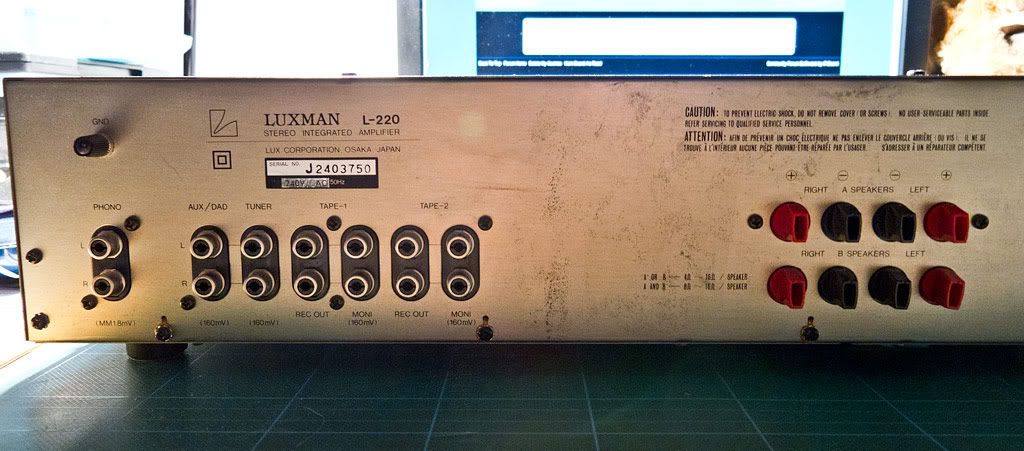Hello,
So im looking to buy some new speakers for my new rig - i currently have: NO LINKING TO COMPETITORS!
So you see why im looking to upgrade.
Ive done some research into speakers, and i thought i was quite computer savvy, but speakers and sound seem to confuse me for some reason.
I will be using the speakers for (pretty equally) music, movies, music composition and games. Im not overly bothered by deep booming bass, that ratles windows at this stage, im more interested in richness and tone.
I sit about 1 1/2 - 2 feet from my monitor.
I have a E-mu 0404 (http://www.creative.com/emu/products/product.aspx?category=505&pid=20022).
And am looking to spend £100 - £200(flexible).
I know there is some debate between buying pc speakers/home theatre systems. Not sure what i should be looking at. However i read to avoid HTIB because speakers are usually a bit rubbish, and its cheaper and you end up with better quality by building your own. So i would be open to more of an "upgrade" system to fit my budget rather than buying everything at once, if its recommended to go the home theatre route. So starting with 2.1 and eventually upgrading to 5.1. This is where i get confused in the swamp of dobly digital, thx cetified, whether home theatre works with pc surround for music/games/movies, recievers (do i need one?), reading that s/pdif can be used for 5.1 but dosnt sound as good as 5.1 over analog.
Systems i have been looking at(pc speakers):
Logitech Z-906
Yamaha NS-P20
Logitech Z5500
Home theatre(upgradable):
Polk Audio CS2 Series II Center Channel Speaker
Polk Audio Monitor30 Series II Two-Way Bookshelf Loudspeaker
Could someone please give me some guidance and advice as to what i should be going for, and what setup will work best with what i have avaliable (budget and hardware)? As i said the main thing is richness in tone and quality. With surround a close second.
Thanks!
So im looking to buy some new speakers for my new rig - i currently have: NO LINKING TO COMPETITORS!
So you see why im looking to upgrade.
Ive done some research into speakers, and i thought i was quite computer savvy, but speakers and sound seem to confuse me for some reason.
I will be using the speakers for (pretty equally) music, movies, music composition and games. Im not overly bothered by deep booming bass, that ratles windows at this stage, im more interested in richness and tone.
I sit about 1 1/2 - 2 feet from my monitor.
I have a E-mu 0404 (http://www.creative.com/emu/products/product.aspx?category=505&pid=20022).
And am looking to spend £100 - £200(flexible).
I know there is some debate between buying pc speakers/home theatre systems. Not sure what i should be looking at. However i read to avoid HTIB because speakers are usually a bit rubbish, and its cheaper and you end up with better quality by building your own. So i would be open to more of an "upgrade" system to fit my budget rather than buying everything at once, if its recommended to go the home theatre route. So starting with 2.1 and eventually upgrading to 5.1. This is where i get confused in the swamp of dobly digital, thx cetified, whether home theatre works with pc surround for music/games/movies, recievers (do i need one?), reading that s/pdif can be used for 5.1 but dosnt sound as good as 5.1 over analog.
Systems i have been looking at(pc speakers):
Logitech Z-906
Yamaha NS-P20
Logitech Z5500
Home theatre(upgradable):
Polk Audio CS2 Series II Center Channel Speaker
Polk Audio Monitor30 Series II Two-Way Bookshelf Loudspeaker
Could someone please give me some guidance and advice as to what i should be going for, and what setup will work best with what i have avaliable (budget and hardware)? As i said the main thing is richness in tone and quality. With surround a close second.
Thanks!




